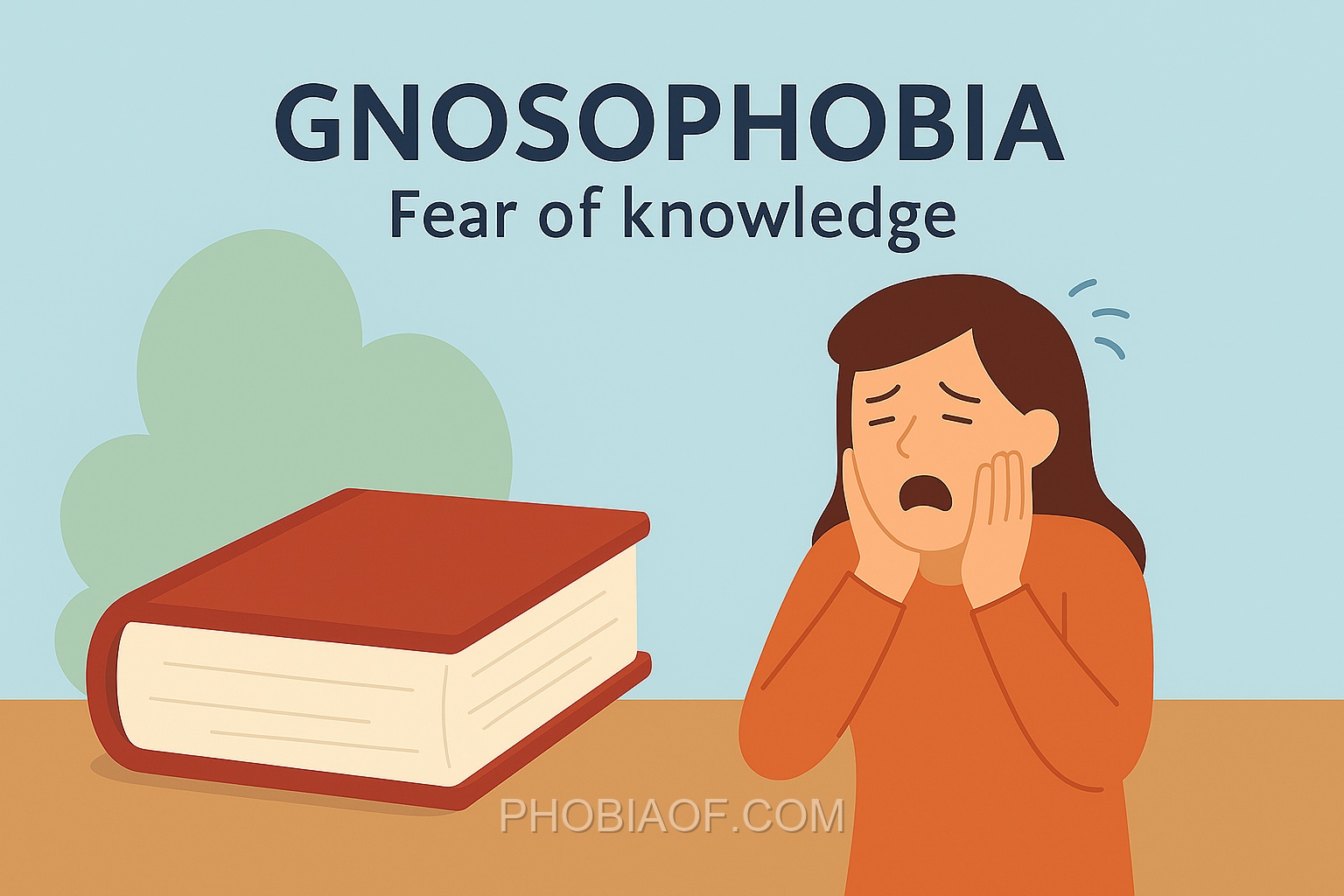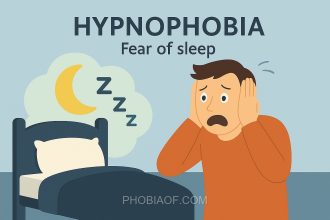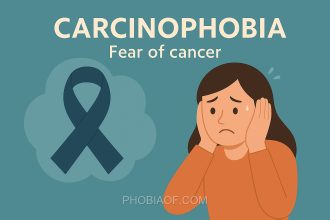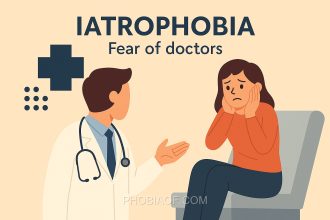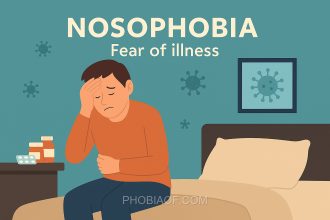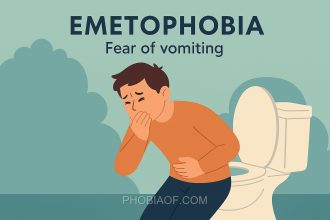Have you ever been afraid to learn something new because of what it might reveal? This hesitance to acquire knowledge could be more than just a passing feeling—it might be a specific fear known as gnosophobia.
Gnosophobia, derived from the Greek words “gnosis” meaning “knowledge” and “phobos” meaning “fear,” refers to an intense fear or aversion to gaining knowledge. Unlike the common worries that come with learning, such as test anxiety or the fear of failure, gnosophobia is a deep-seated fear that can significantly impact a person’s life.
People experiencing gnosophobia may avoid situations where learning is involved, whether it be in a classroom, a workplace training, or even casual conversations where new information might be shared. This avoidance can lead to missed opportunities and a reluctance to engage with the world, potentially hindering personal and professional growth.
Understanding and addressing gnosophobia is crucial because knowledge is a fundamental part of human development and interaction. If you or someone you know is struggling with this fear, recognizing it is the first step towards finding strategies to cope and overcome it.
While gnosophobia may not be widely discussed, its effects are very real and deserve compassionate attention and understanding. By discussing it openly, we can help those affected feel less isolated and more empowered to seek the support they need.
Causes of Gnosophobia
Gnosophobia, the fear of knowledge, can stem from various causes, ranging from genetic factors to environmental influences. Understanding these potential causes can provide insight into why someone might develop this specific phobia.
Genetic Predisposition
Research suggests that genetic factors may play a role in the development of phobias, including gnosophobia. If a person has family members who suffer from anxiety disorders or specific phobias, they might be more predisposed to developing similar fears.
Traumatic Experiences
Experiencing a traumatic event related to knowledge or learning can lead to gnosophobia. For instance, a negative experience in an educational setting, such as being humiliated in class, may trigger this fear.
Learned Behavior
Observing others, especially parents or close relatives, who exhibit fear or negativity towards knowledge or learning can influence an individual to adopt similar behaviors. This learned behavior can gradually develop into a phobia over time.
Psychological Factors
Underlying psychological issues, such as low self-esteem or anxiety, can contribute to the development of gnosophobia. The fear of being judged for one’s knowledge or lack thereof can exacerbate this phobia.
Environmental Factors
Environmental factors, such as the cultural or societal value placed on education and knowledge, can also influence the development of gnosophobia. In environments where knowledge is undervalued or heavily criticized, individuals may develop a fear of acquiring or displaying knowledge.
Interesting Theories and Research
Some researchers propose that gnosophobia may be linked to a fear of the unknown or a fear of change, as acquiring new knowledge can challenge existing beliefs and worldviews. Ongoing studies continue to explore these theories to better understand the origins of this unique phobia.
Symptoms of Gnosophobia
Gnosophobia, the intense fear of knowledge, can be a debilitating condition that significantly impacts a person’s life. Individuals with this phobia experience severe anxiety when confronted with situations or environments where gaining knowledge is likely. Below are some common symptoms that may help in recognizing gnosophobia in oneself or others:
- Intense Fear or Anxiety: An overwhelming sense of fear or anxiety when faced with the prospect of learning or acquiring new information.
- Panic Attacks: Sudden onset of intense fear or discomfort, often accompanied by physical symptoms such as shortness of breath, chest pain, or dizziness.
- Sweating: Excessive sweating, especially in situations related to learning or knowledge acquisition.
- Rapid Heartbeat: Noticeably increased heart rate when exposed to triggers related to the phobia.
- Avoidance Behavior: Deliberate avoidance of situations, places, or activities where learning is likely to occur.
- Overwhelming Dread: A persistent feeling of dread or doom about having to engage in activities that involve gaining knowledge.
- Nausea or Gastrointestinal Distress: Feeling nauseated or experiencing stomach upset when confronted with the phobic trigger.
- Emotional Distress: Feelings of helplessness, embarrassment, or shame about the fear of learning.
When severe, these symptoms can significantly interfere with daily life, affecting educational pursuits, career opportunities, and personal development.
Treatment for Fear of Knowledge
If you are experiencing a fear of knowledge, known as gnosophobia, it’s important to understand that you are not alone and there are effective treatments available. With time, patience, and the right approach, this phobia can be managed and overcome. Here, we outline several proven treatment options and coping strategies to help you on your journey.
Therapeutic Treatments
Various therapeutic methods have been shown to effectively address gnosophobia:
- Exposure Therapy: This therapy involves gradually exposing yourself to the fear of knowledge in a controlled and safe environment. Over time, repeated exposure can lessen the fear response and help you become more comfortable with the concept of gaining knowledge.
- Cognitive-Behavioral Therapy (CBT): CBT is designed to help you identify and change the negative thought patterns that contribute to your fear. By reframing these thoughts, you can reduce anxiety and develop healthier attitudes towards knowledge.
- Counseling: Speaking with a trained therapist or counselor can provide support and guidance as you work through your fear. They can offer personalized strategies and a safe space to express your concerns.
Self-Help and Coping Techniques
In addition to professional therapy, there are several self-help techniques that can complement your treatment:
- Relaxation Exercises: Techniques such as deep breathing, progressive muscle relaxation, and visualization can help reduce anxiety when faced with fear-inducing situations.
- Meditation: Regular meditation practice can promote mindfulness and lower anxiety levels, making it easier to approach your fear logically and calmly.
- Support Groups: Connecting with others who experience similar fears can provide a sense of community and shared understanding. Support groups offer a platform to exchange coping strategies and encouragement.
Medication
In severe cases, medication such as anti-anxiety drugs may be prescribed to help manage symptoms. However, it is generally recommended to focus on therapeutic and coping strategies as the primary means of treatment.
Remember, it is essential to seek professional help if your fear of knowledge is interfering with your daily life. A mental health professional can guide you in finding the most effective treatment plan tailored to your needs. With the right support and strategies, overcoming gnosophobia is an achievable goal.
Conclusion
Understanding the causes and symptoms of gnosophobia, the fear of knowledge, is a crucial step towards addressing and overcoming this often debilitating condition. By recognizing the underlying factors and manifestations of this phobia, individuals can begin to dismantle the barriers that prevent them from embracing new information and experiences.
It is important to remember that many people successfully manage or overcome their phobias with time, patience, and the right support. If you or someone you know is struggling with gnosophobia, consider reaching out to a mental health professional. Therapy can provide valuable tools and strategies to help cope with and eventually conquer these fears.
Ultimately, taking the first step towards understanding and addressing gnosophobia can be empowering. By seeking help and remaining open to change, you can transform fear into curiosity and knowledge into a source of empowerment. Remember, you are not alone, and with the right support, a fulfilling and informed life is within reach.
Call to Action: If you suspect you have gnosophobia, consider talking to a therapist or a doctor who can provide guidance tailored to your needs. Embrace the journey towards overcoming this fear and reclaim the joy of learning and discovery.
